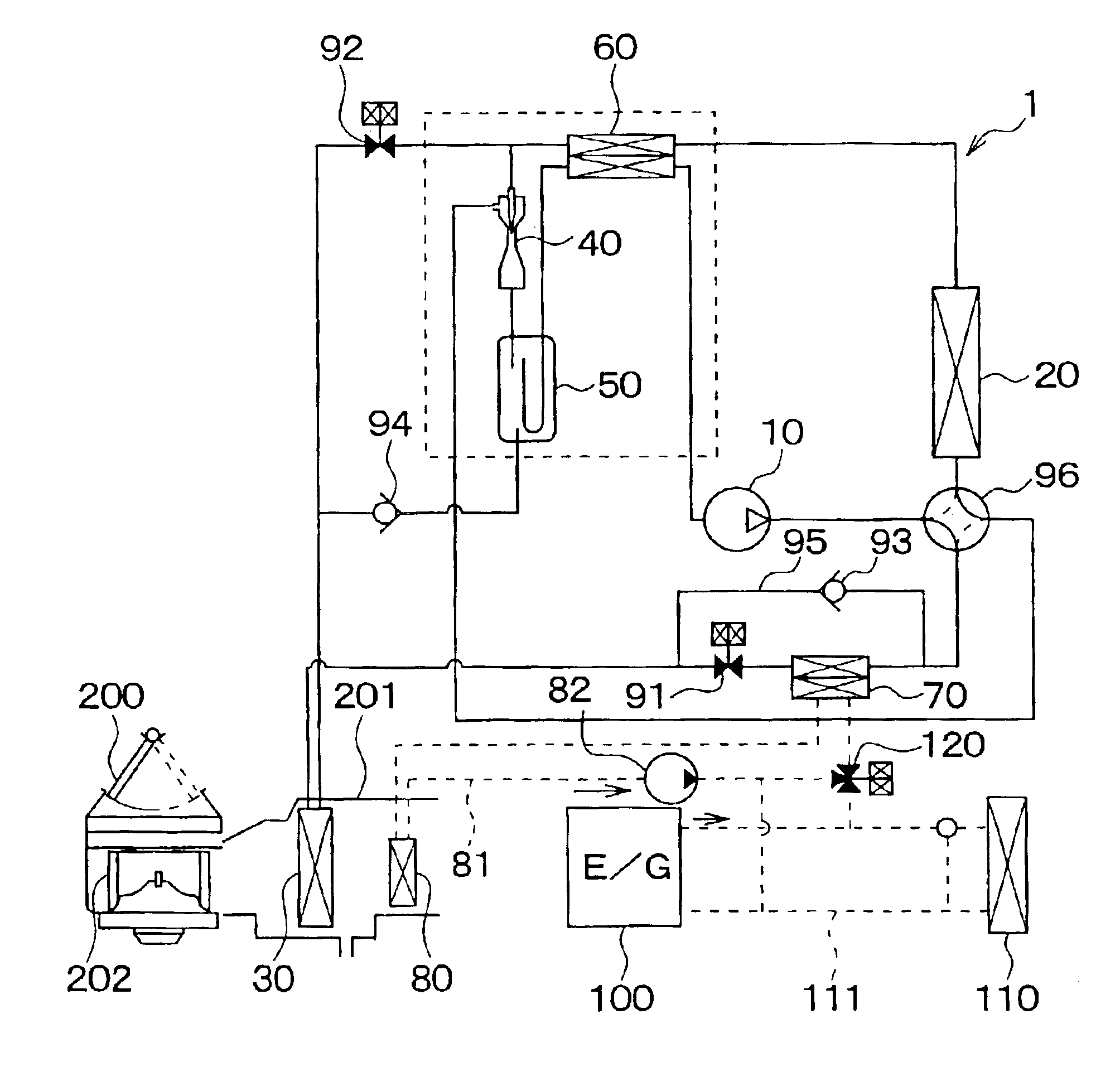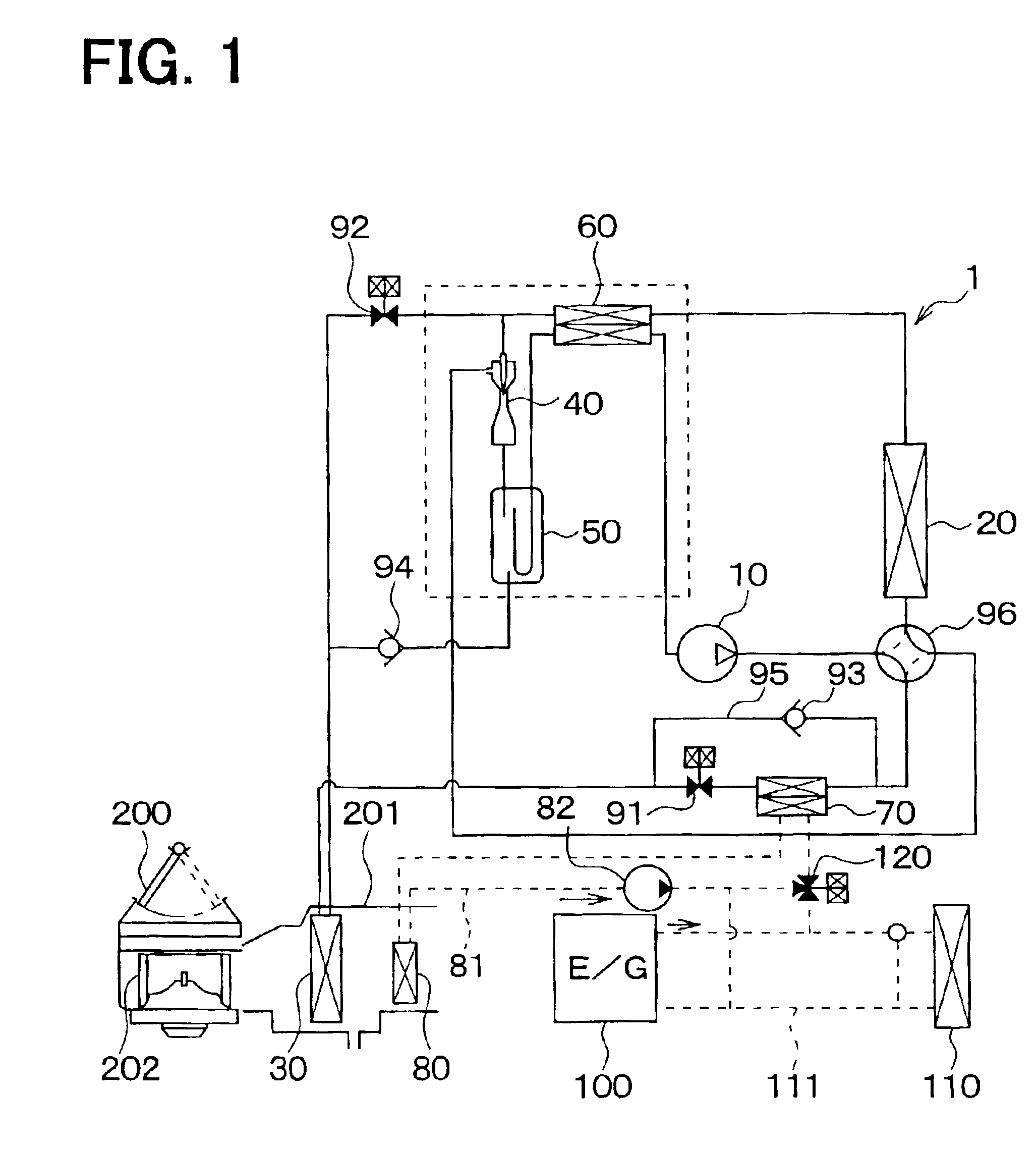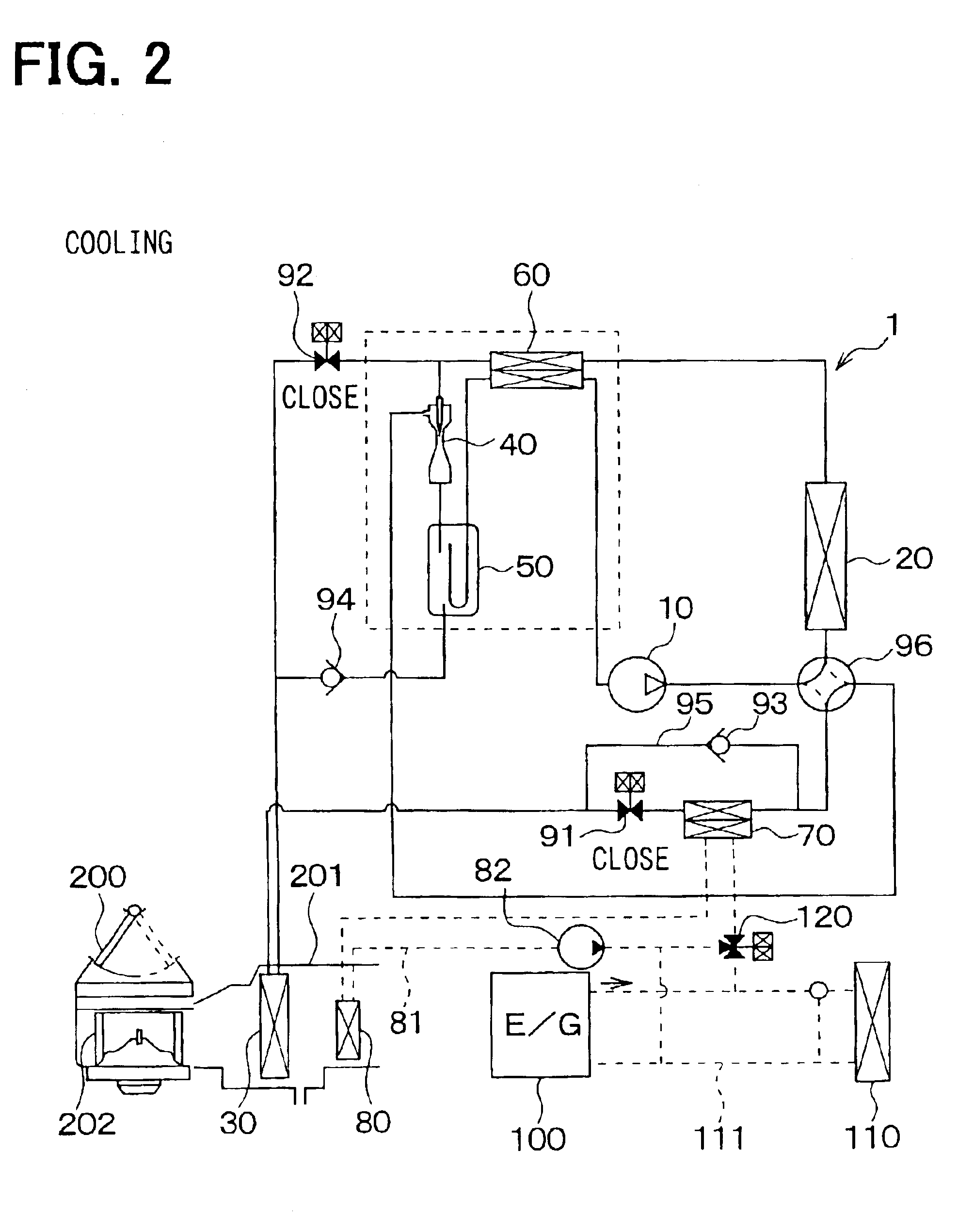Vehicle air conditioner with vapor-compression refrigerant cycle
- Summary
- Abstract
- Description
- Claims
- Application Information
AI Technical Summary
Benefits of technology
Problems solved by technology
Method used
Image
Examples
first embodiment
[0030](First Embodiment)
[0031]In the first embodiment, an air conditioner of the present invention is typically used for a vehicle. As shown in FIG. 1, the air conditioner includes a vapor-compression refrigerant cycle 1 having an ejector type decompression device. The refrigerant cycle 1 includes a compressor 10, an exterior heat exchanger 20, an interior heat exchanger 30, an ejector 40, a gas-liquid separator 50, an inner heat exchanger 60, a water-refrigerant heat exchanger 70, and a heater core 80.
[0032]The compressor 10 is a variable displacement compressor operated by a driving force from a driving engine, and is used as a pumping means for sucking and compressing refrigerant. The compressor 10 variably controls a displacement so as to absorb a variation of an engine speed and an air conditioning load. Here, the displacement means a theoretical displacement discharged from a discharge port of the compressor 10 by one rotation cycle of a shaft in the compressor 10.
[0033]In thi...
second embodiment
[0066](Second Embodiment)
[0067]The second embodiment is a modification of the first embodiment. Specifically, as shown in FIG. 5, the water-refrigerant heat exchanger 70 is disposed upstream from the switching valve 96 in the refrigerant flowing direction. In other words, the water-refrigerant heat exchanger 70 is disposed on the discharge side of the compressor 10 rather than the switching valve 96.
[0068]Although a refrigerant system of the second embodiment is modified, operation of the refrigerant system of the second embodiment is similar to that of the above-described first embodiment, and the advantage similar to the first embodiment can be obtained.
third embodiment
[0069](Third Embodiment)
[0070]In the dehumidifying and heating operation of the above-described first embodiment, the water-refrigerant heat exchanger 70 heats the engine-cooling water circulating through the heater core 80, so that the air to be blown into the compartment is heated indirectly by the high-temperature refrigerant as a heating source discharged from the compressor 10. In the third embodiment, as shown in FIG. 6, the interior heat exchanger 30 is used as a first interior heat exchanger, and a second interior heat exchanger 31 is disposed downstream from the interior heat exchanger 30 in the air flowing direction. The high-temperature refrigerant discharged from the compressor 10 is introduced in the second interior heat exchanger 31 so that the air to be blown into the compartment is heated directly by the second interior heat exchanger 31.
[0071]Next, characteristic operation and its effect of the air conditioner in this embodiment will be now described.
[0072]1. Coolin...
PUM
 Login to View More
Login to View More Abstract
Description
Claims
Application Information
 Login to View More
Login to View More - R&D
- Intellectual Property
- Life Sciences
- Materials
- Tech Scout
- Unparalleled Data Quality
- Higher Quality Content
- 60% Fewer Hallucinations
Browse by: Latest US Patents, China's latest patents, Technical Efficacy Thesaurus, Application Domain, Technology Topic, Popular Technical Reports.
© 2025 PatSnap. All rights reserved.Legal|Privacy policy|Modern Slavery Act Transparency Statement|Sitemap|About US| Contact US: help@patsnap.com



